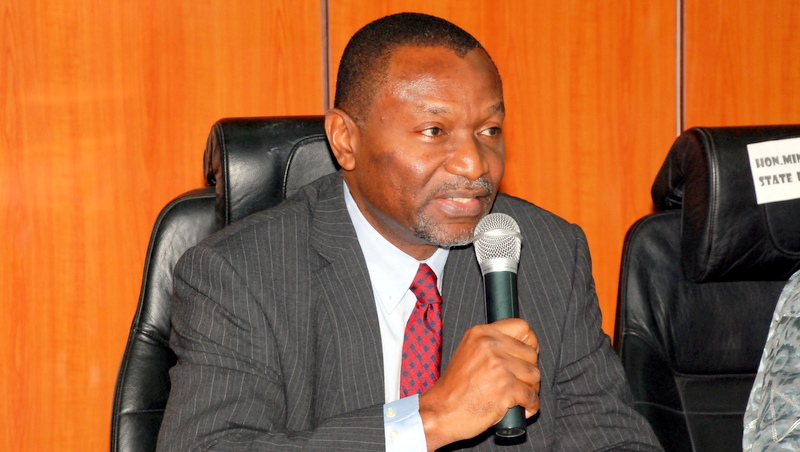Federal Government has announced plans to implement measures toward realizing a growth target of 7 per cent by 2020.
Briefing journalists on the forthcoming 23rd Nigerian Economic Summit (NES23) scheduled to hold on October 10 -12, 2017 in Abuja, Senator Udoma Udo Udoma, Minister of Budget and National Planning, said: “The implementation of the Economic Recovery Growth Plan, ERGP is critical to achieving the ambitious goals of this government to diversify the economy and attain a growth rate of 7 per cent by 2020.”
Udoma stated that the summit would elicit and adopt a solution-based approach in addressing the issues that will expand opportunities, tackle unemployment and improve productivity. “This is in line with the aspirations of the ERGP which aims at restoring and sustaining growth, investing in our people, and building a globally competitive economy. The theme is also significant, given the need to sustain the imperatives of the “Made-in-Nigeria” agenda from NES#22. This is expected to enhance the effective implementation of ERGP and also translate to improvement in living standards of the citizen”, he stressed.
The theme of this year’s summit tiled “Opportunities, Productivity & Employment: Actualizing the Economic Recovery & Growth Plan”, according to Udoma , is also significant, given the need to sustain the imperatives of the “Made-in-Nigeria” agenda from NES#22.
It will be recalled that last year’s summit, NES#22 focused on “Made-in-Nigeria” with the aim of getting stakeholder commitment to the structural and fiscal changes required to diversify the Nigerian economy by placing much-needed emphasis on Made-in-Nigeria goods and services.
Udoma said “It provided a timely opportunity for a national economic review and created a consensus amongst all Nigerians on the need for us to significantly increase the level of productivity across all sectors. Most of the summit outcomes have been mainstreamed into the Economic Recovery and Growth Plan (ERGP) 2017-2020 which was launched by the President in April.”
The Minister, who noted that the summit would be structured into five key thematic pillars, explained “ Pillar 1- “Think Nigeria”: This pillar seeks to identify what proactive steps are required towards building a local content in our economy, in which our national competitive advantage is created and sustained through a highly localised process; Pillar 2 – Skills, Competencies & Capacity: will focus on the linkages between economic opportunities, productivity, skills and competencies and the right policies that can deliver in the core areas; Pillar 3- Access to Capital: Is concerned with how Nigerians can create and explore the strategic investment options, frameworks, models and business cases for unlocking the type of capital flows that create opportunities and jobs for Nigerians.
Others are Pillar 4 – Legislation: Here, we are going to examine what will be the impact of specific legislation identified by the National Assembly Business Environment Roundtable (NASSBER) to create economic opportunities and jobs for Nigerians and pillar 5 – Economic Inclusion: The focus of this pillar will be on what tangible actions and collaborative efforts are required to deepen economic inclusion across Nigeria to unlock opportunities at the sub-national, deescalate threats to national security and make the business for a united Nigeria.”

